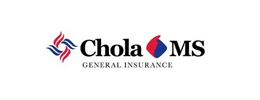Last updated on: September 19, 2025
The medical expenses deduction allows taxpayers to reduce their taxable income by deducting certain unreimbursed medical and dental expenses for themselves, their spouse, and dependents. For the 2023 tax year, you may only deduct qualified expenses that exceed 7.5% of your adjusted gross income (AGI). Eligible expenses include payments for prescription medications, doctor visits, surgeries, mental health care, and specific treatments or equipment. You must itemize deductions on Schedule A of IRS Form 1040 to claim this benefit, which may not be advantageous for taxpayers who qualify for a higher standard deduction. Not all expenses qualify—cosmetic surgery, general health items, or reimbursed costs are excluded. Careful recordkeeping and documentation are essential to substantiate your claims in case of an audit.
Medical expenses deduction is a tax benefit available in India that allows individuals and Hindu Undivided Families (HUFs) to claim deductions on their income for certain medical costs. This is particularly beneficial to the taxpayers who incur high expenditures on healthcare as a result of illnesses, disabilities, or hospitalisation. These income tax deductions are used by the government to lessen the financial load of medical emergencies, preventive healthcare, and care of senior citizens and people with serious illnesses.
As the medical requirements and expenses have changed and increased, it is important to know the intricacies of medical expenses deduction in assessment year 2025-26 as an Indian taxpayer. This article will address all your questions, highlights the main aspects, eligibility, restrictions, simple calculation and gives professional advice on how to maximise your deductions.
The expenses should be incurred on self, spouse, children who are dependent, or parents. There are even sections where one can deduct dependent brothers and sisters.
Expert Opinion: Most individuals think that only hospital bills are covered but even the cost of preventive health check up up to a certain amount falls under certain sections.
You know, did you know?
The main provisions of the Income Tax Act in relation to medical expenses deductions are Section 80D, Section 80DD, Section 80DDB and Section 80U. The various situations that are discussed in each section include health insurance premiums, rehabilitation of disabled dependents, and costs on specified diseases.
Section 80D: Premiums paid on Health Insurance
Section 80DD: Disability Expenses
Section 80DDB: Specified Diseases
Section 80U: Handicapped Taxpayers
| Category | Maximum Deduction (₹) | Age Up to 60 | Above 60 Years |
|---|---|---|---|
| Section 80D (Self & Family) | 25,000 | Yes | No |
| Section 80D (Senior Citizens) | 50,000 | No | Yes |
| Section 80DD (Disability) | 75,000 | Yes | Yes |
| Section 80DD (Severe Disability) | 1,25,000 | Yes | Yes |
| Section 80DDB (Specified Illness) | 40,000 | Yes | No |
| Section 80DDB (Senior Citizens) | 1,00,000 | No | Yes |
Professional Tip: To make correct claims, it is important to have Section 80DDB certification by a relevant government hospital authority.
Rahul (35 years) is a salaried employee who paid 18,000 as health insurance premium (self and family) and 3000 on preventive check-up in FY 2024-25. The amount he is allowed to deduct is 21,000- within the Section 80D limit of 25,000.
Q: Is it possible to have both the husband and wife claiming the deduction of the same policy under medical?
A: Yes, provided that both are contributing the premium at a proportional rate of their taxable income and that the same is supported by documents.
Did you know?
When your employer pays your medical expenses you cannot claim the same expenses under individual deduction sections.
In early 2024, Ramesh, a 63year old retired teacher in Pune, was diagnosed with chronic kidney disease. The amount he spent on treatment in a year was approximately 1.5 lakh. He had a complete health insurance cover, which paid 80,000. For the remainder, Ramesh claimed a deduction under Section 80DDB (up to ₹1 lakh for senior citizens in 2025). The claim procedure was done using a certificate issued by a nephrologist in a government-recognised hospital.
He was not allowed to deduct what he had already paid through his insurance policy- only out of pocket expenses up to the yearly limit were allowed. The story of Ramesh demonstrates the actual financial relief that these deductions bring, however, it is important to keep right documentation and be aware of limits.
Q: What would happen in case of two or more family members receiving treatment of a particular illness within the same year?
A: Section 80DDB deduction is per tax payer and not per family member. You should strategize your claims.
Did you know?
The deduction of medical expenses can be done only on the payments made in non-cash form i.e. cheque, UPI, bank transfer, or cards. These cannot be claimed as cash payment except preventative health checkups within the stipulated limit.
| Feature | Section 80D | Section 80DDB |
|---|---|---|
| Kind of cost | Health insurance premium and preventive checkup | Medical treatment of the specified diseases |
| Eligible persons covered | Self, spouse, dependent children, parents | Self, spouse, children, parents, dependent siblings |
| Maximum limit per year | 25,000/50,000 (senior citizens) | 40,000/1,00,000 (senior citizens) |
| Disability covered? | No | No |
| Certificate required? | No | Yes, specialist doctor in government hospital |
| Covered by insurance premium? | Yes | No, just cost of treatment |
Q: Can medical expenses be deducted on dental and cosmetic procedures?
A: No, expenses on cosmetic or aesthetic treatments like dental implants or surgery, unless medically necessary (e.g., reconstructive surgery after an accident), are not covered.
| Section | Category | Maximum Deduction (₹) |
|---|---|---|
| 80D | Premium Self/Family Non-Senior | 25000 |
| 80D | Premium Senior Citizen | 50,000/- |
| 80DD | Maintenance Disabled Dependant | 75,000 |
| 80DD | Maintenance Severe Disabled Dependant | 1,25,000 |
| 80DDB | Specified Disease Treatment (non senior) | 40,000 |
| 80DDB | Specified Disease Treatment (senior) | 1,00,000 |
| 80U | Disabled Taxpayer | 75,000 |
| 80U | Severe Disability Taxpayer | 1,25,000 |
Did you know?
Under Section 80D, you can claim preventive health checkup even when you have not paid a health insurance premium as long as the amount is below the 5,000 limit.
In order to get the maximum tax deduction under Section 80D, when searching the health insurance policy, it is advisable to compare the plans offered by different insurers side by side. In a few clicks, online marketplaces allow you to compare policy features, premiums, and deductible eligibility. These sites are 2025 updated so your choice is efficient and informed.
The deduction of medical expenses in 2025 has a broad scope of benefits on insurance premiums, treatments, and expenses on disability or critical illness. Understand your eligibility, maintain medical documentation, pay via traceable (non-cash) methods, and use reliable comparison tools to choose policies that maximise your benefit. The deductions have certain limits as set out by Income Tax Act.
Q: Is health insurance premium paid on behalf of a brother or sister deductible?
A: No, only self, spouse, dependent children and parents are permitted under Section 80D. In case of Section 80DD however, there is coverage of dependent siblings who are disabled.
Q: What happens when my employer pays some of my hospital bills?
A: Un-reimbursed out of pocket expenses are the only expenses that can be claimed as a deduction. Do not claim reimbursements.
Q: How frequently I require a medical certificate under Section 80DDB?
A: Once a year, by a prescribed specialist in a government-approved hospital.
Q: Does NRI have the option of medical expenses deduction?
A: Yes, provided that the expenses are incurred in India and satisfy the conditions of section.












How could we improve this article?
Written by Prem Anand, a content writer with over 10+ years of experience in the Banking, Financial Services, and Insurance sectors.
Prem Anand is a seasoned content writer with over 10+ years of experience in the Banking, Financial Services, and Insurance sectors. He has a strong command of industry-specific language and compliance regulations. He specializes in writing insightful blog posts, detailed articles, and content that educates and engages the Indian audience.
The content is prepared by thoroughly researching multiple trustworthy sources such as official websites, financial portals, customer reviews, policy documents and IRDAI guidelines. The goal is to bring accurate and reader-friendly insights.
This content is created to help readers make informed decisions. It aims to simplify complex insurance and finance topics so that you can understand your options clearly and take the right steps with confidence. Every article is written keeping transparency, clarity, and trust in mind.
Based on Google's Helpful Content System, this article emphasizes user value, transparency, and accuracy. It incorporates principles of E-E-A-T (Experience, Expertise, Authoritativeness, Trustworthiness).